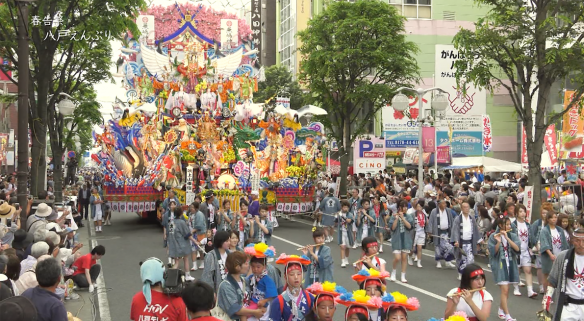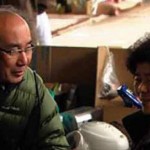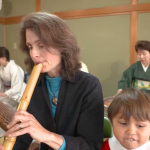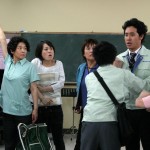TRAVEL

Hachinohe Enburi -The Festival to Beckon Spring-
TRAVEL
2017
30 mins Episode(s): 1
english
Japanese




[Festivals of Japan Season 1]
The Hachinohe Enburi is a traditional festival that takes place in the southern region of Aomori Prefecture. It's held to bring forth good harvests and to welcome the coming of spring. Dancers called tayu wear headdresses made in the shape of horse heads and shake their heads wildly while expressing the acts of planting and cultivating rice. This episode describes this 800-year-old festival and the people who cherish, cultivate, and pass it down.
Click here to preview the program!
Part of "Festivals of Japan Season 1".
The Hachinohe Enburi is a traditional festival that takes place in the southern region of Aomori Prefecture. It's held to bring forth good harvests and to welcome the coming of spring. Dancers called tayu wear headdresses made in the shape of horse heads and shake their heads wildly while expressing the acts of planting and cultivating rice. This episode describes this 800-year-old festival and the people who cherish, cultivate, and pass it down.
Click here to preview the program!
Part of "Festivals of Japan Season 1".
Customers who watch this video also watch
-
Tsunami Disaster: Heartache and Hope Through the Viewfinder – 49 Days of Life and Death –
 2011 2012 New York Festivals United Nations DPI Bronze Award. On March 11th, 2011, the Great Eastern Japan Earthquake of magnitude 9.0 leveled northeastern Japan. Kesennuma City of Miyagi Prefecture was torn apart. The subsequent tsunami and fires that broke out from fuel leakage led to 1,500 people dead or missing from...more details
2011 2012 New York Festivals United Nations DPI Bronze Award. On March 11th, 2011, the Great Eastern Japan Earthquake of magnitude 9.0 leveled northeastern Japan. Kesennuma City of Miyagi Prefecture was torn apart. The subsequent tsunami and fires that broke out from fuel leakage led to 1,500 people dead or missing from...more details -
Shakuhachi Flute and Texas- Okayama Prefecture
30 mins[Beauty of Japan Season 2] Jennifer is a Shakuhachi (Japanese flute) master who originally comes from Texas. She says the beauty of the instrument lies in its ability to express nature. Birds singing and the sound of waves can all be expressed through Jennifer's shakuhachi. She mastered the ability to...more details -
On-chan Season 1
 2008 Shanghai TV Festival International Animation Nominated, 2008 New York Festival Finalist, 2009 Banff World TV Festival Nominated, 2009 On-chan is an educational animation program for young children. The episodes are filled with laughter and lessons for young viewers as well as a variety of very loveable characters. See how On-chan...more details
2008 Shanghai TV Festival International Animation Nominated, 2008 New York Festival Finalist, 2009 Banff World TV Festival Nominated, 2009 On-chan is an educational animation program for young children. The episodes are filled with laughter and lessons for young viewers as well as a variety of very loveable characters. See how On-chan...more details -
Ode to Joy: A Chorus for Life
 2008 Gold Winner, Entertainment Category, 11th World Media Festival, 2010. It is summer in the hilly port city of Ootaru. The singing of the Ootaru Ladies Chorus group comes through the dusk from a room of the Minami Ootaru Community Center. They are absorbed in rehearsals for their upcoming 20th anniversary...more details
2008 Gold Winner, Entertainment Category, 11th World Media Festival, 2010. It is summer in the hilly port city of Ootaru. The singing of the Ootaru Ladies Chorus group comes through the dusk from a room of the Minami Ootaru Community Center. They are absorbed in rehearsals for their upcoming 20th anniversary...more details



